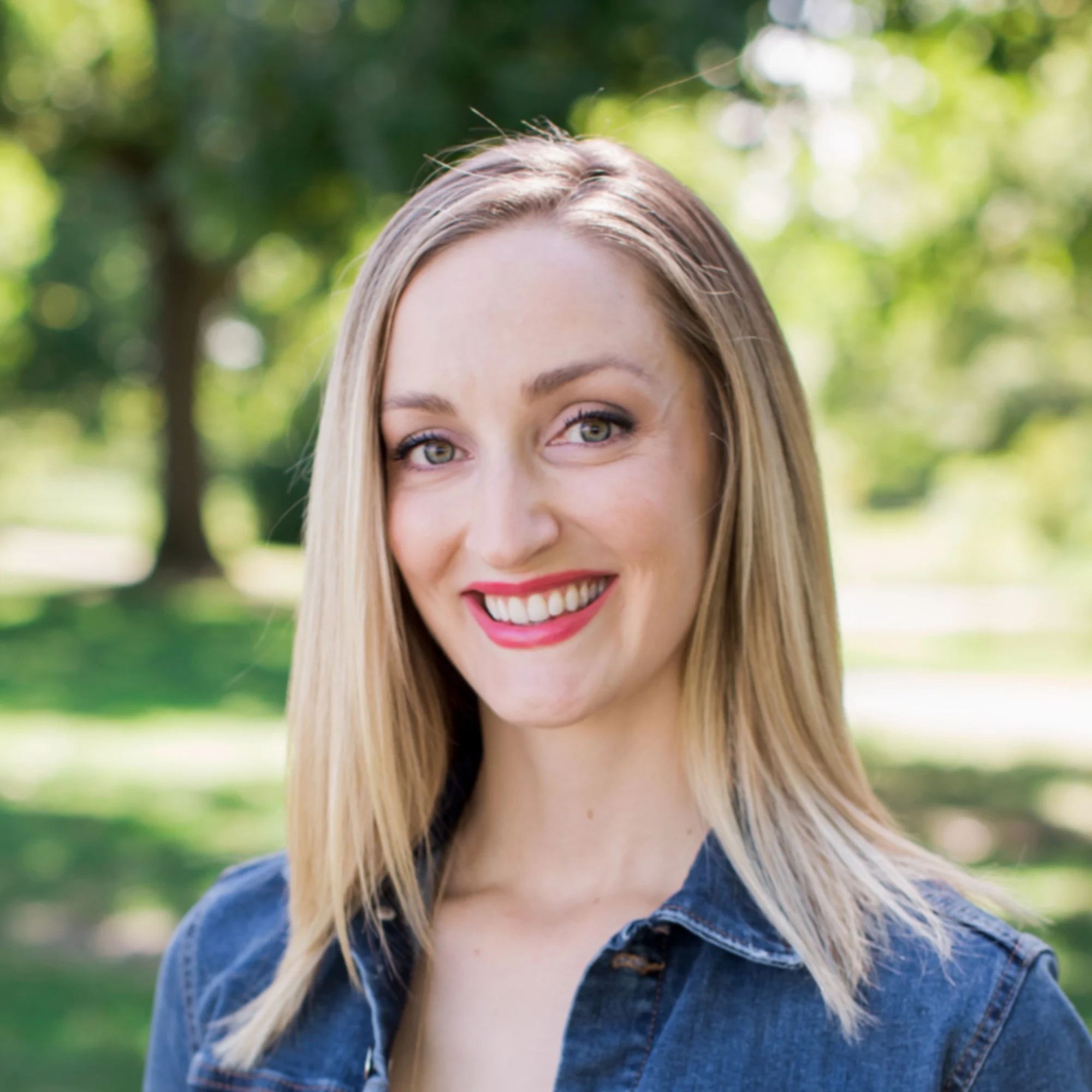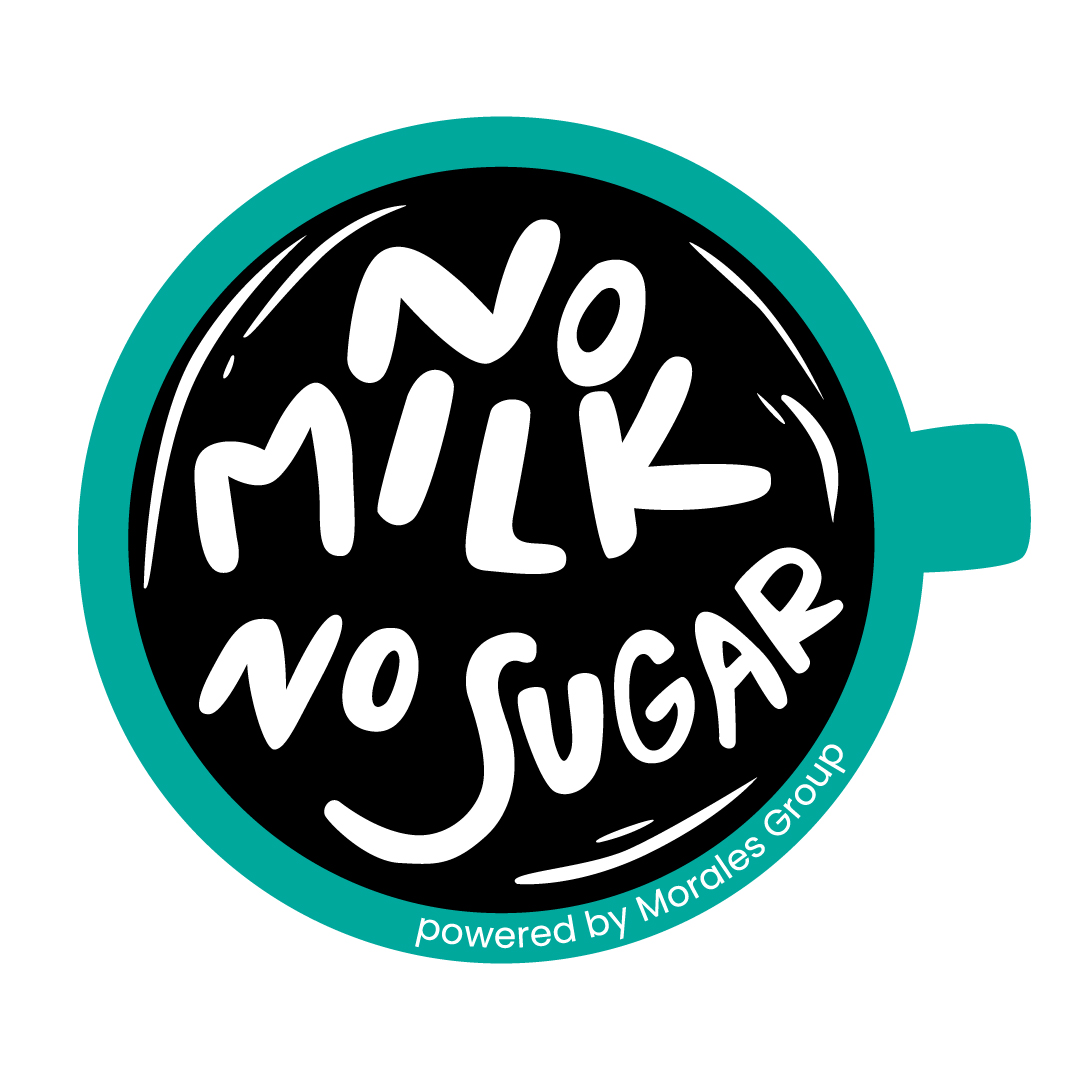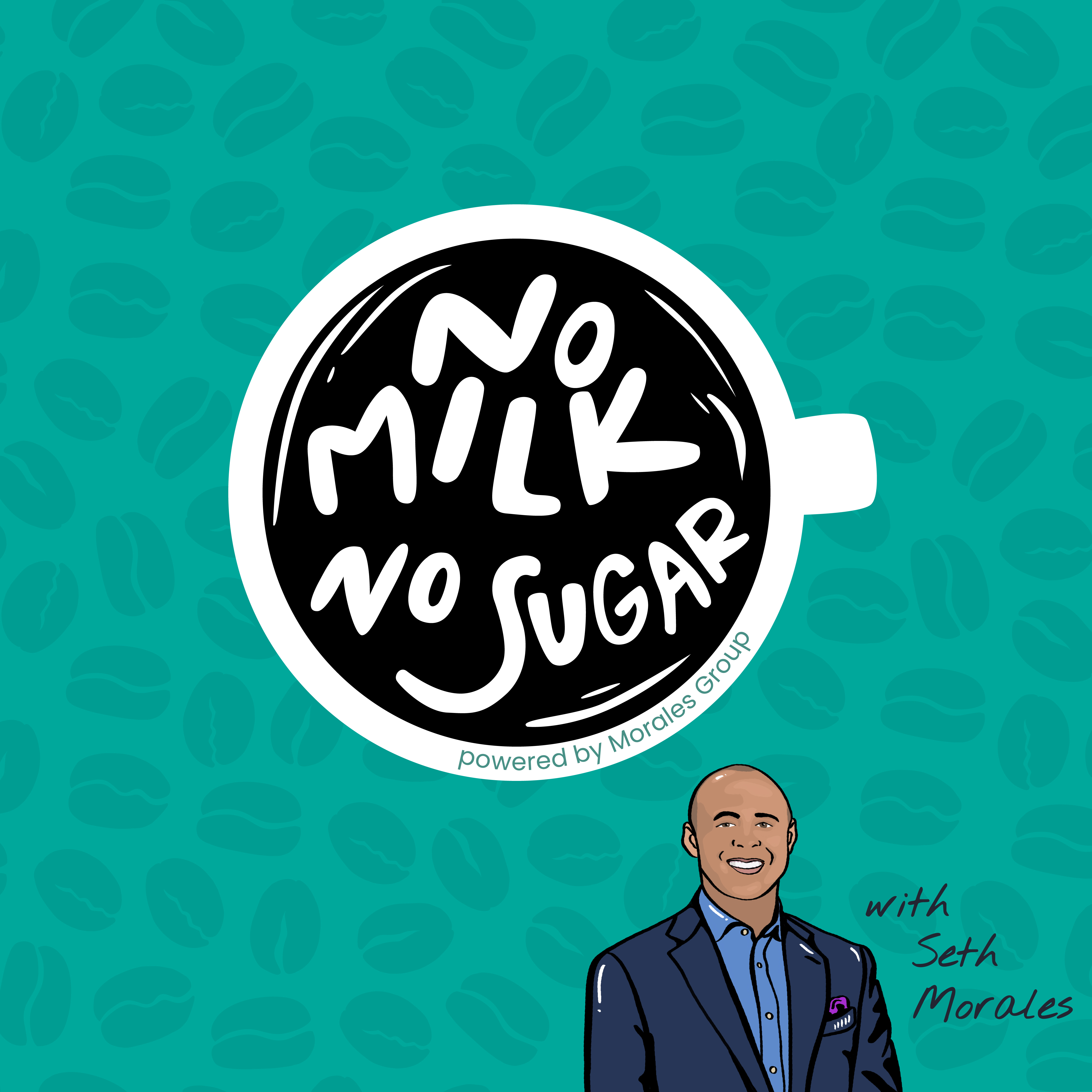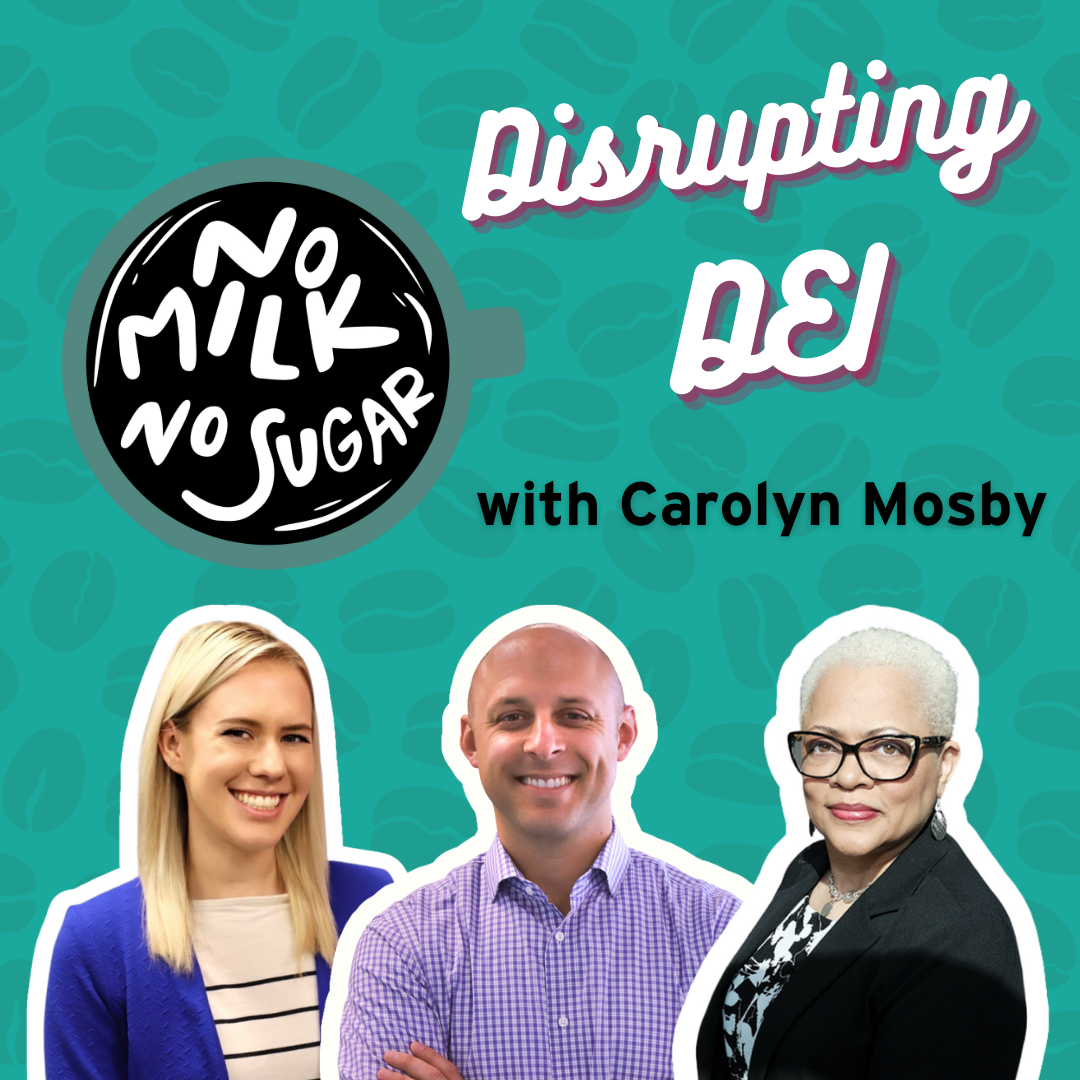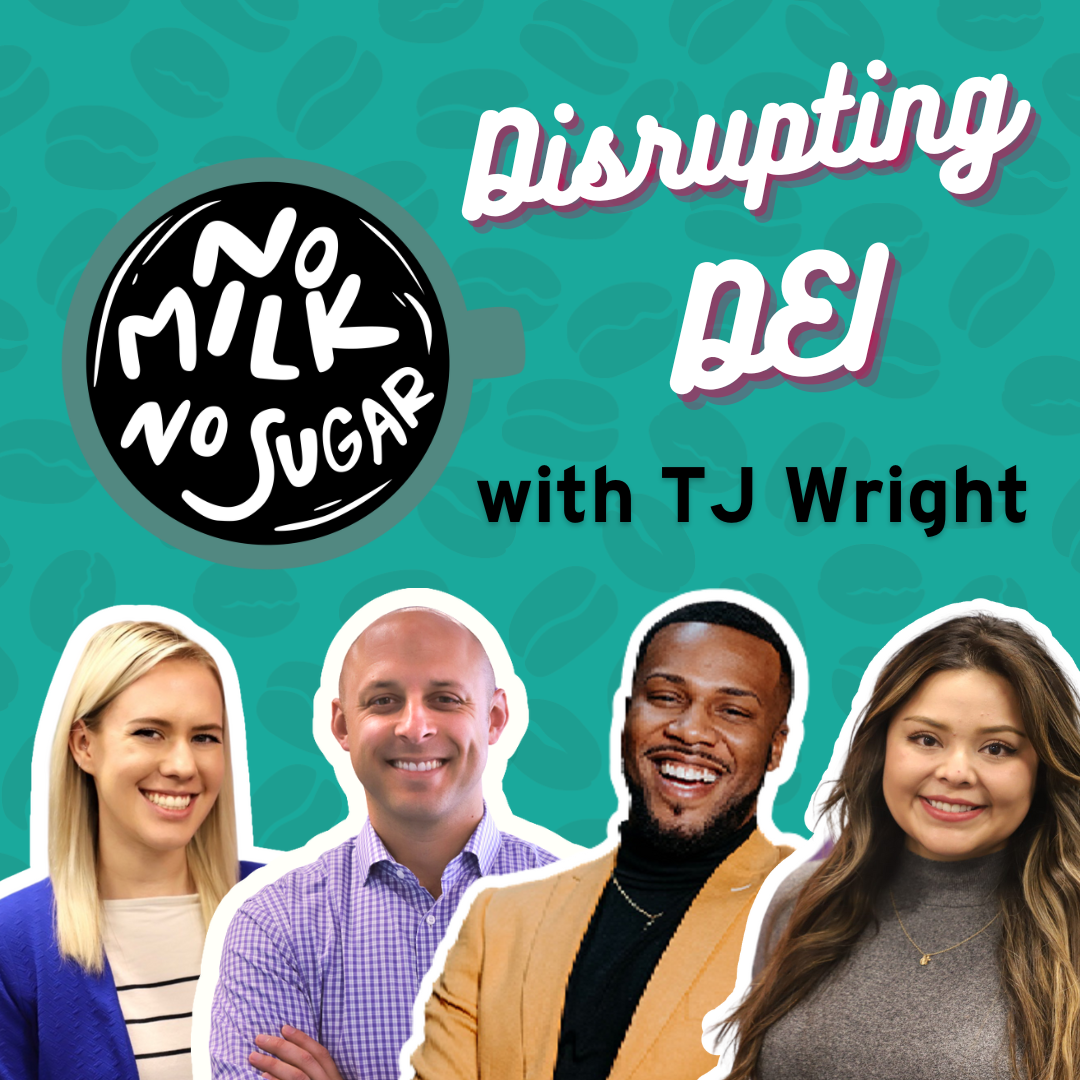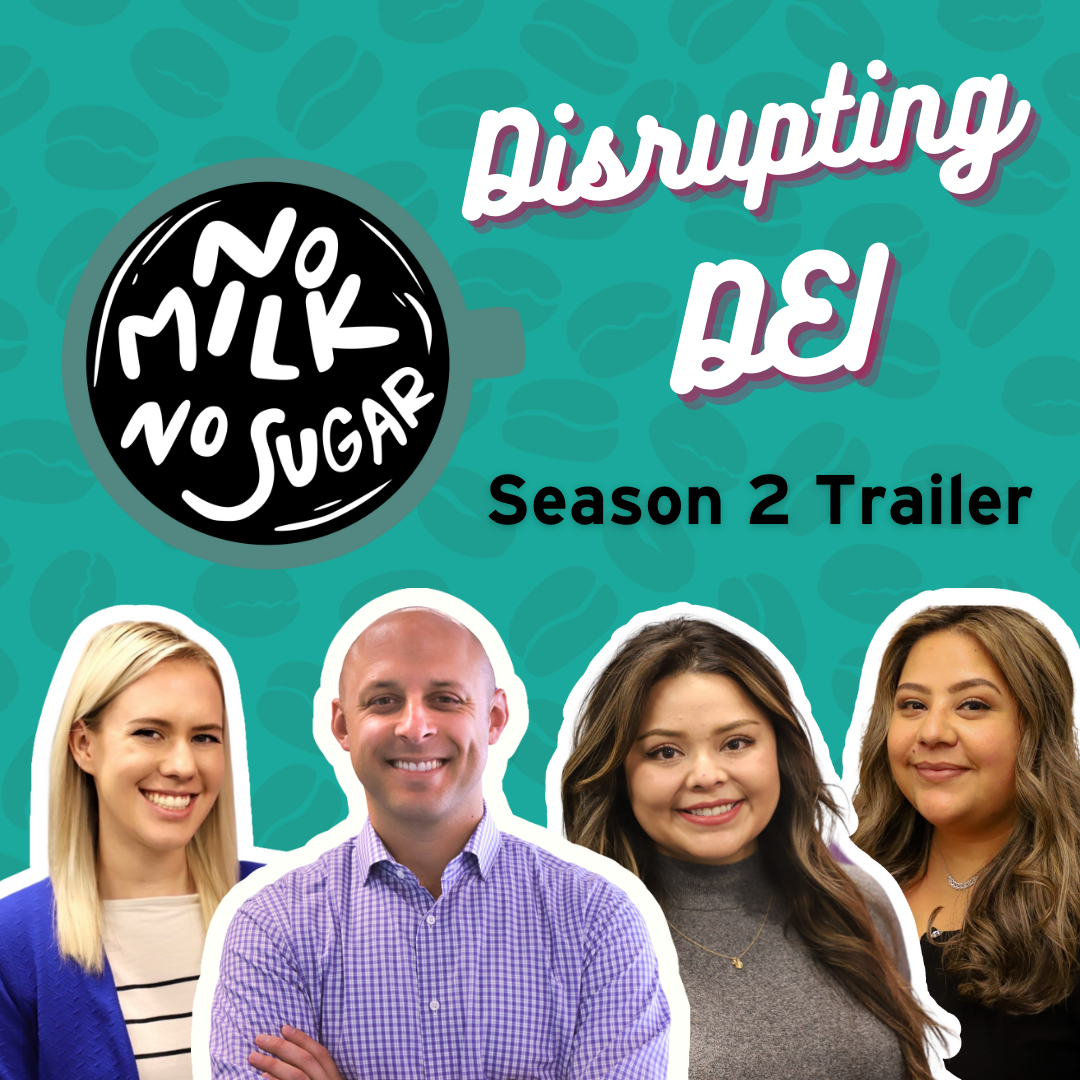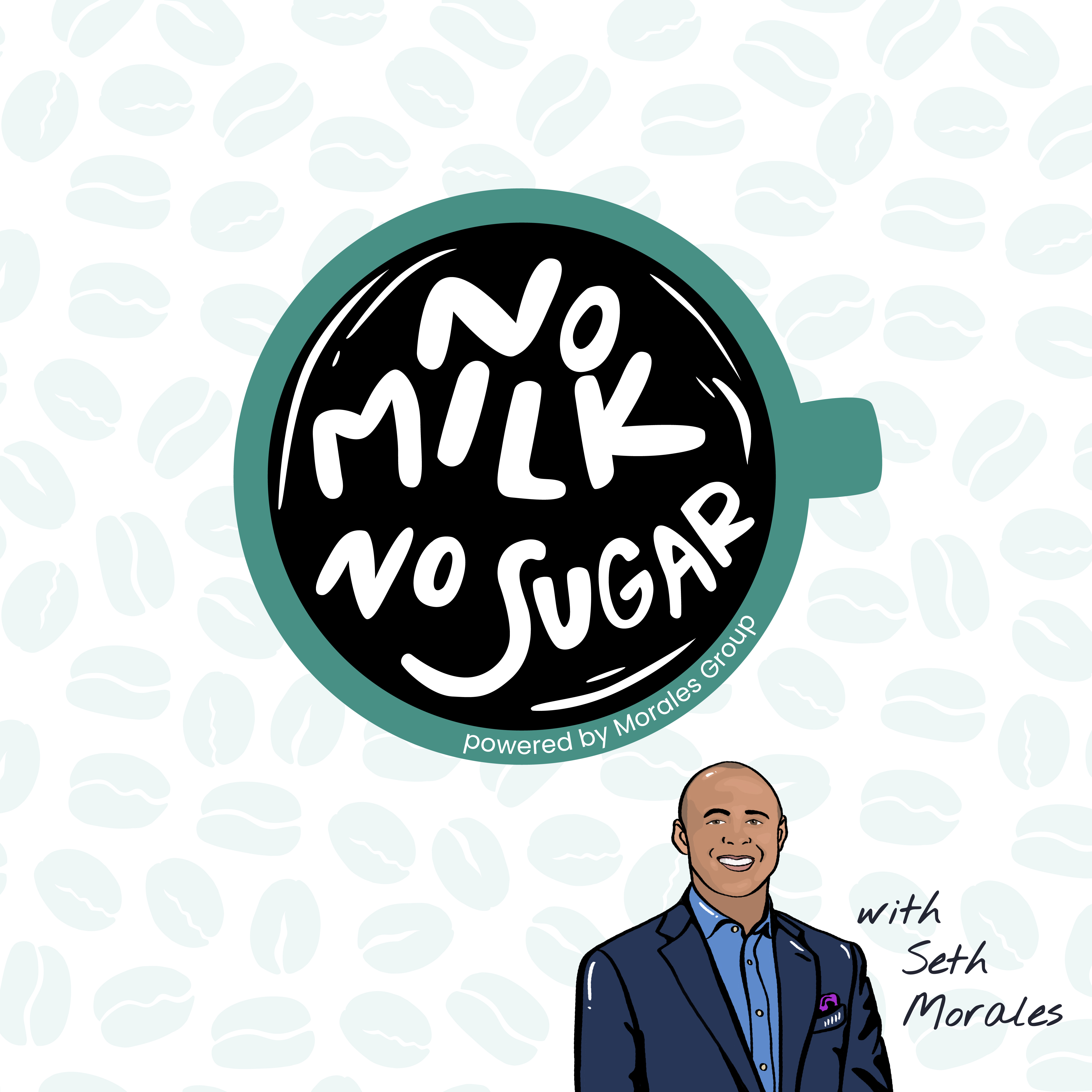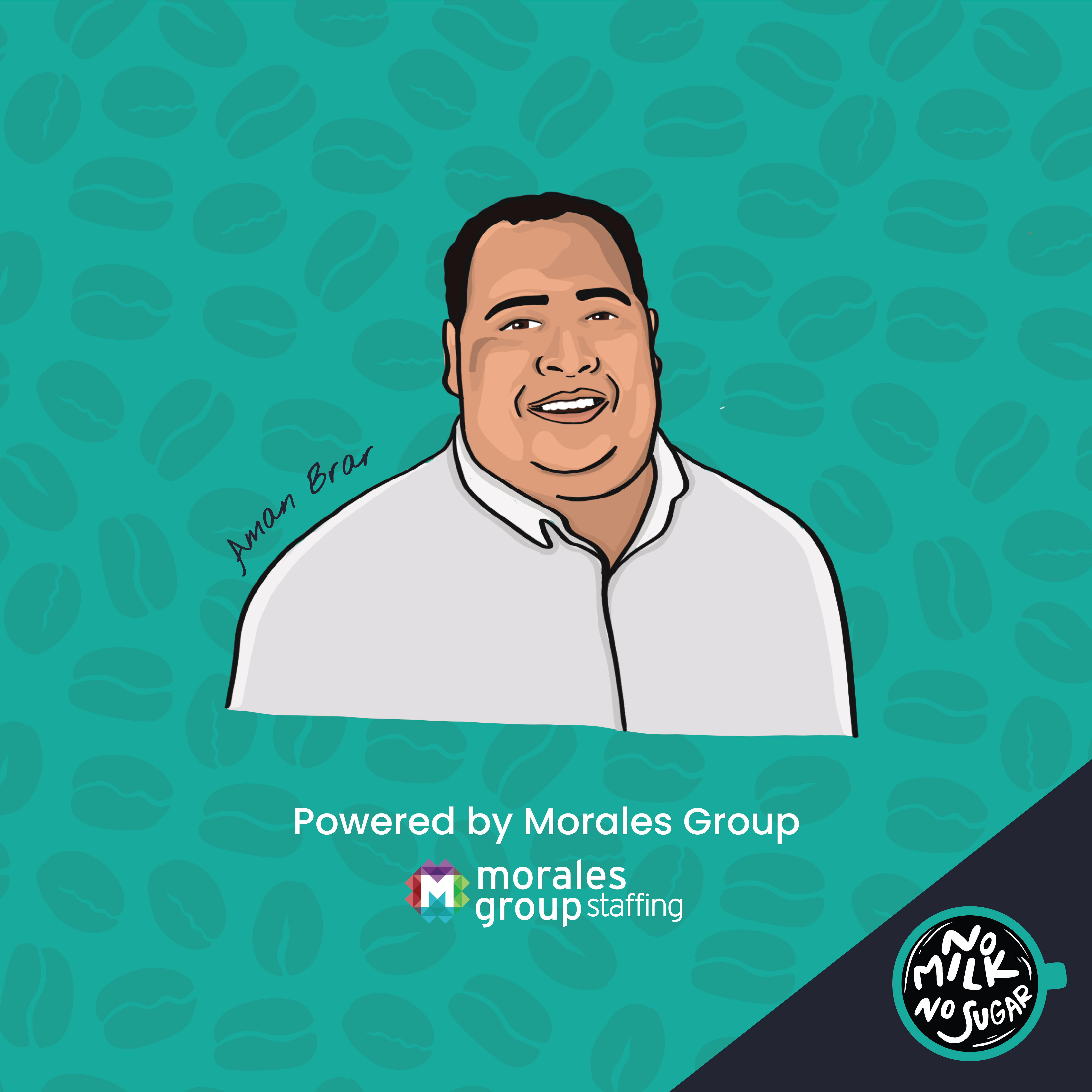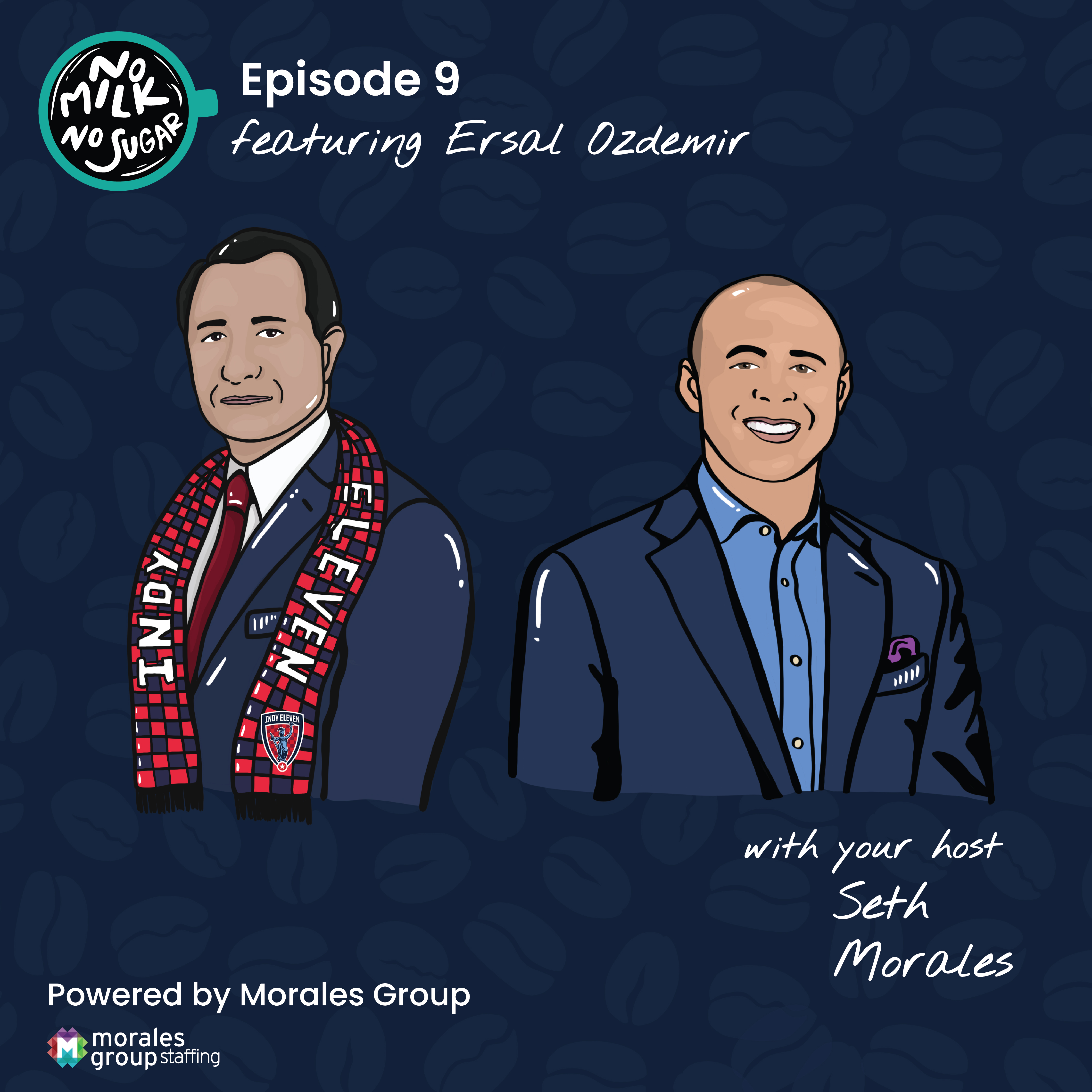Amplified Marketing & the Art of Human Connection, with Casted's Lindsay Tjepkema
- 0.5
- 1
- 1.25
- 1.5
- 1.75
- 2
Tori: I've got a coffee for Seth. No milk, no sugar.
Seth: Right here. Thank you.
Tori: You are listening to No Milk No Sugar, the podcast about business beneath the sweetener. Powered by Morales Group and hosted by CEO, Seth Morales, we talk to local movers and shakers about what can be the harsh reality of doing business. We cover what no one likes to advertise, but everyone wants to hear. I'm Tori, producer of the show. And today, we talk to the OG of business podcasting and amplified marketing herself, Lindsay Tjepkema. Lindsay is a B2B marketer turned first time CEO and co- founder of Casted, an original audio and video content marketing platform. In our season one, No Milk No Sugar finale, Lindsay shares with us the secrets to maintaining a tight knit culture going from team member to executive and the secret sauce that is amplified marketing.
Seth: It's really cool to be a fan from afar and cheerlead and also be a user. Today I thought we could kind of chop it up. And with No Milk No Sugar, we do want to ask some of the tough questions or get behind the curtain and what's not easy because it's not all highlight, and I know you've been pretty real about that. I wanted to start off one thought that I had was just the origin of how Casted got started, or what was the connection with, I know there was kind of a Scott Dorsey connection there too that was kind of interesting. I mean, just to give everyone kind of some context, give us a little bit about how Casted got started and your role.
Lindsay Tjepkema: And so my background's in marketing, 15 years as a B2B marketer. And really my career got started right about the same time that content marketing hit the scene and people really started to think about how to use the content, the blog posts and the website and what you put out into the world to as a real part of your marketing strategy. And so I saw that come onto the scene. I kind of grew up with that strategy being a huge part of marketing and saw content marketing from every single angle and B2B marketing from every single angle, large companies, small companies, agency and corporate. And right before starting Casted, I was leading a global brand and content team. And as part of doing that, what I always like to do is say the more human the brand, the better. Those are the ones that win is the ones that create a real human to human connection regardless of whether it's B2C or B2B or what you're selling. And so as part of that, sort of having great conversations like what we're doing now and just talking to our internal experts and our external experts and our customers and our partners and turning that into content. And over time, this was 2016 when I got started and said, hey, we're having these conversations, why not turn them into podcasts and into video content? So we did. And long story short, I was shocked that there was no software. There was no platform that any amount of money could buy that could help me and my team create this content, take this content, ring out this content, measure this content in a way that mattered at all, or had any semblance of just relation or was designed for us in any sort of way. So nevertheless, we carried on. We kind of duct taped together our own solution and kind of figured it out. But over time, as our content strategy and our brand grew, we started to get noticed even more. It was taking off and Scott Dorsey, who is at High Alpha, former CEO and founder of ExactTarget, which had an incredible IPO, an acquisition by Salesforce. But yeah, as I mentioned, he's now at High Alpha, which starts and spins out great startups, reached out to me and said, hey, you're doing something in B2B podcasting. We're kind of kicking around what that looks like. I'd love to talk with you. Had a great conversation, told him, hey, it's not just about B2B podcasting, it's about all of content marketing and kind of what the future of that looks like. And by the way, if we do something, like if you start a company, I'm in. We're doing this together. I raised my hand and long story short, that's where Casted got started was the experiences that I had, the shock and awe that I had that this platform didn't already exist and I set out to be the change I wanted to see. And Scott and High Alpha were there to support that endeavor.
Seth: Yeah. I love that. I love that relationships matter and then seen kind of an unmet need in the market and understanding kind of the space and then kind of collaborating around it. For our viewers who don't know Lindsay and Casted, you guys have had a phenomenal run over the last few years. There's been a lot of growth, a lot of buzz. You got your Series A round of funding, which was really big, that's awesome. You guys have had a ton of growth. There's been a lot of success, but at the same time, there's been some challenges of starting up a business. What comes to mind just with, what hasn't been easy with the startup process if there was a challenge that really comes to mind?
Lindsay Tjepkema: Like trying to raise Series A in the midst of a pandemic at home while my kids are here, I would say that would be one. That was something that, of course, everyone faced regardless of whether you're a startup or a huge global corporation. That was huge, just navigating those waters. 2020 was our first real full year. My day one was April 29th, 2019. So we had our first birthday in the midst of a pandemic and then not knowing. We didn't really have product market fit at that point. We were still very much, very much in the acquisition of our very first customers, kind of not knowing things were going to go, knowing that I was going to need... We had just raised our seed round of capital, which thank goodness, that was huge. But I knew that there was a clock on that and that I was going to have to go raise Series A and no one knew how long this pandemic was going to last. So there was a lot of uncertainty. I had to get very, very, very comfortable with that uncertainty very fast. You add to that, I think, so that's the pandemic. Obviously, we were all there. I think more for me and regardless of whether the pandemic happened or not, I went from marketing leader and just that career made sense. I went to school for marketing. I started in marketing and just kind of took that path and making the leap from marketing leader, knowing the ins and outs of B2B marketing to first time founder and CEO of a tech company. And yes, I'm the domain expert and I know I wanted to be the change I wanted to see, but as the CEO of the company doing the thing, not as the marketing leader. And that was a big change. And again, being comfortable with being uncomfortable, getting comfortable with uncertainty, being comfortable asking a lot of questions and knowing that I don't have all the answers, getting really comfortable with asking for help. I think those are some of the hardest things. Just the uncertainty. If I had to sum that all up with one word, it'd be uncertainty.
Seth: Yeah, for sure. I think being a leader, being a new leader in that role and having COVID over your head and the funding opportunity and the uncertainty, I know there was a lot of sleepless nights for us and just the amount of pressure and working remote. I know that you guys were all remote for quite some time. And so just going through that where you can't even like collaborate in office, there's a lot of challenge there. One of the other questions I wanted to ask you about, I was talking to my good friend, Santiago from Amplify. It's interesting, I met Santiago. I got to really get to know him about four years ago and he's been through a number of different series of fundings and they just had their exit not too long ago where they sold for 55 million. And the before and after of Santi, just what his life was like in the pressure cooker and then talking to him after it has been done, he had a different vibe. How does it feel for you being in the pressure cooker, like you said, get comfortable with being uncomfortable? A hundred percent agree. Build upon that or talk to me more about just the amount of pressure that you have and how you deal with it or just what's it like. Can you give us a feel for that?
Lindsay Tjepkema: Yeah. I mean, I probably not unlike you or anyone else you talk to, I think I put more pressure on myself than anyone else. So that's very familiar, but it is different even if that's the life you're used to. It is different as your team grows. And through the pandemic, we went from 10 to 20. Now we're at 35 people. So there's more people and more lives and more mortgages and more kids involved in this whole thing. And so that's a lot of pressure. And pressure also, I don't know if pressure is the right word, but just responsibility to these people and to this role and to communicate, which is obvious, but also kind of a realization and aha of like the responsibility to communicate the right things in the right way, the right number of times to the right people, because if you don't, communication is so undervalued. If you don't, things don't happen or the wrong things do happen, or people say, well, you didn't tell me, and they're right. Or I didn't know. And that's everything from your board, like we couldn't help you because we didn't know, down to the people on your team saying, if only we had known or you didn't tell us or I thought we were doing X, Y and Z, and now you're saying that this was important. So that I think is the more felt day to day pressure, day to day responsibility, at least in this role is communication because as Eric Tobias, who's one of the other partners at High Alpha, who's just a wonderful human calls it perfect knowledge. So in this role, lots of leaders, you have perfect knowledge of what's happening. It doesn't mean you know everything. It just means compared to kind of everybody else on the team, you're the one who kind of sees everything and feels everything and hears everything and talks to all the people. And it's up to you to take it in and sift through it and not hold onto it, but make sure that you're actively communicating in the right way, in the right moment, with the right tone, to the right people, that's the job, that's the responsibility. And that changes and that's not a thing you can kind of just do, it's a thing that you're constantly working toward. At least I am. I'm constantly working toward it and actively trying to get better at that literally every day.
Seth: I love that. Perfect knowledge taken from Tobias, translated into Casted. I think that that's a really good thought when you talk about responsibility and communication and as a leader, making sure that you over communicate what that objective kind of just update is to the team. We had our all company today. It was great to be back in person. We kind of had a hybrid all company where we had half the team video digitally and then also in person. But making sure that we communicate and over communicate and communicate in an objective reasonable way is really important. I was going to ask you just to kind of come back to, as you started, what did you lack in confidence as a founder, as a CEO and what do you lack in confidence today? So kind of pre and then post, what was kind of missing?
Lindsay Tjepkema: Okay. So going into it, I talked about this before. So going from marketing leader to CEO, I mean, I had a lot of, I mean, call it imposter syndrome, not knowing what I didn't know. I don't have an MBA and I am not well versed in operations and finance and I didn't come into this having the experience of a CFO or a HR leader. I'm not a product developer. I'm not a technical founder. I was on marketing leader track. And so I know everything there is to know about some things and I was just very wide eyed about a lot of others, financial modeling and raising capital. That's something I'd never done before, and down to some of what I now see as really, really basic things that I didn't know. And so that's where a lot of the uncertainty was then. This whole thing is not unlike parenting, where you go into it... I have three kids, and you go into it and there's some things you know you don't know, and those things might excite you or scare you. But then there's also things that you had no idea. And looking back, if anybody had told me, like I even have twins and it's like, if somebody had told me, hey, this is what it's like and these are all the things you're going to have to know, it's overwhelming, but you learn them as you go and then you look back and you're like, how did I learn those things? How is it possible that X number of years ago, I had no idea how to do this thing. Same thing. Going into this, what I didn't know, it was a long list and I've learned a lot over the last couple years, especially raising capital. I've raised two rounds now and there's going to be more ahead and I'm ready. As far as where the vulnerability and where the unknowns are now, we're scaling. We're on a rocket ship. We're in high growth mode. We're at 35- ish people today and some really incredible, huge, amazing customers and people that are doing really cool things like you all. And again, talk about that responsibility to grow in the right direction. I'm actively learning and working toward becoming that leader of a high growth company and that's where, again, a lot of that excitement and some fears and some healthy uncertainties and seeking after more confidence around being that leader of a much larger company on the other side of all this growth. And I see where we can go. And I believe it in the depths of my bones what Casted can and should be and I believe so much in this team. And I just want desperately to be the right leader for it.
Seth: Yeah. No, that's rich. I appreciate you sharing that. You said a couple things a few times. I heard you say unknowns and being okay with maybe jumping in the deep end and just trying to figure out a way to swim, having some good people around you, but being okay with not having an MBA or being a technical founder, but you have some core strengths that if you work on it and you know you're going to try to figure a way out. I think it's those moments where you don't know what it's like having twins or doing a startup, but at the same time, when you roll up your sleeves and you actually do the work, you can look back in these seasons and be grateful and be like, okay, I did learn some of this. I don't know what that was like, but now I can look back and it was rich.
Lindsay Tjepkema: That is interesting how you don't even know what you don't know until you look back and you're like, when did I even pick this up? Actually, it's interesting. I was talking to someone the other day who was starting a company or had started a company and was starting to think about raising capital. And so she came to ask me and for a minute, I was like, why is she asking me? I'm still in that mindset of like, I don't know. And she was like, well, you raised two rounds, like you just did this. And I was like, okay, I'll tell you what I know. And we had like a two hour conversation and she was just writing things down. I was like, when did I pick up this knowledge, which makes sense, but you're not an active spectator of your own education. And sometimes I guess we maybe should take note.
Seth: Yeah. No, it's good. It's good that you were able to zoom out with her and talk about that and then, okay, so I do have context and I did learn something and now I can actually kind of put that into writing that I did this and I've got a little bit of experience. No, that's great. You mentioned something earlier, that you had three kids. You had said a set of twins and a third, and then you've been married. So obviously, you got a busy family and you're balancing. How are you doing that? I struggle with that as a dad, just wanting to be great on both sides of the field. For you, how are you putting it together and kind of making it work?
Lindsay Tjepkema: Yeah. I mean, and this conversation, we've talked a lot about uncertainties in this role and leadership and that kind of thing. I mean, if you want to get real, that's been the hardest part. And not just in this role, but in growing a career and in being in a... Our mutual friend, Tiffany Sauder, talks a lot about dual career families. And I am lucky enough and blessed enough to have a wonderful husband who's a great dad and we're all here, but we both have really demanding careers and he travels. And now that the pandemic, we're sort of coming out of that, he's back to traveling again sometimes three to five days a week, and balancing his travel and his career with me leading this company and our three boys that are elementary and middle school aged, it's a lot. It's a lot. It's a lot. And dropping the ball all over the place. What's most important to me is that, and it sounds really cheesy, but that the boys always know they're loved, no matter what. If we're eating literally chicken nuggets every night, even though I'm a big health freak and I thought that would never be my life, here we are eating chicken nuggets in front of the TV, but it's while we're snuggling and so I'm there. And so it's been hard. And having to ask for help, having to accept help, which I'm not very good at. It's one thing when it's working and it's delegating. It's another thing in your personal life when it feels like help. That's been harder for me, but it's important and it takes a village and it takes priorities and it takes boundaries. And I don't always do a good job and it doesn't look like I thought it would years ago when I thought about what it would be like to have kids and have a family and a career. It doesn't look the way I thought it would, but the love is there, which I guess it's all that matters.
Seth: What's in the bank account, how many hugs and feels and love, that's what really matters. And it sounds like you've got that priority. It's a work in progress. I think you said it best. Village, boundaries, priorities, like making sure that you have those kind of tent poles in place to get it right. I feel like we're failing all the time. I'll come home and this week is pretty busy with social activities, like before and after kind of business hours. So the bookends of the day, you don't get to connect with your boys or with your family. And I've got a working spouse who works alongside me here at Morales Group who's a hard charger as well. So you can understand, but it's tough trying to balance it all and get it right. I think she's got more challenge. There's a kind of a guilt factor, whereas at times I'm kind of just like running and I don't process the same way as her, but it's a challenge for Jackie just with guilt and doing things the right way. So I appreciate you sharing about that. I did want to ask you this question. So this show is not about no milk, no sugar. So it's not about the sweetener or the milk. We're kind of getting to the nitty gritty. Can you tell me about a moment you've had, whether it's with Casted or in a prior life with a business that you were running, or as a leader with another company where you just had a flop, a fail, just where you sucked. You dropped the ball, it was a moment in life that was like a good learning moment, but you didn't have the best outcome.
Lindsay Tjepkema: If anyone who's ever worked with me is listening, they're probably like, yes, and I'd probably was fully unaware of a lot of them. I think that's how it works out quite often is that you're like, okay, well, I think that was okay. And the people around you are like, what was that? I can think of a couple of times that I'll boil up to me learning as a leader, whether it was first role as a leader or recently leading people or just the business here at Casted. And to me, the times that I think about when I think about, man, I messed up, it was communication. And we've talked about this before, is either information that I held onto or blurted out. And now I'm not even talking about like sharing secrets, but like, okay, I should have shared that differently, or I should have put this into a different context or I should have brought this up sooner or later when I had more information. And so yeah, I think to me, there was one time, it was not at Casted. It was completely different situation where I was in this weird situation. I was kind of stuck between upper management and my team and trying to communicate things that I was hearing. And by the way, I think that that's the hardest role to be in is in that middle management, whether it's a small company or a very large one because you're taking in information, some of which... I mean, no one's perfect and sometimes that management is not communicating to you quite often. They're not communicating to you in ways that they should be. Either you're getting information here that you shouldn't have or you shouldn't have it in the right way or you should not have to be a keeper of, but you are. And then you have to turn around to your team and make decisions about, okay, am I going to share what I know so that there's full transparency, or am I going to share what they should know? And I don't know if there's ever a right answer, but I've definitely made the best decision that I thought was the right move at the time only to see it play out and say, okay, well, that wasn't the right move. Whether that was oversharing or under sharing and then a lot of times, you end up kind of having to fall on the sword and just say, okay, I did my best and I'm the keeper of some information and the sharer of others. And it's tough.
Seth: Yeah. No, that's a good point. I think that communication piece and that middle level management role, that's like integral to everything. That sweet spot is that middle level management role. I saw an article the other day about just like coaching versus, and kind of like dictating down. And that coaching is so important. That communication alongside that coaching at that mid- level manager role is where the magic happens with majority of the team directly report into mid- level management. So really good point there. I appreciate you sharing that. Kind of curious, kind of taking a different path here, B2B podcasting kind of getting into your world, who's a podcast that you're like, hey man, they're rocking out. Maybe it's not B2C because we know a lot of B2Cs right now or those folks that have large followings, like a Joe Rogan or somebody else that's just kind of a well known, but like in the B2B space with who you're involved with and your ecosystem, who comes to mind? Who's doing it right?
Lindsay Tjepkema: Yeah. There's a lot and so many more now than there were even when we got started a couple years ago, but two that come to mind... Actually, I'll bring up three. So HubSpot, everybody knows HubSpot. They've been doing the growth show for a lot longer than people would think. And just recently, they announced a network of shows. So they not only have their shows, but they're kind of curating others and pulling them together. So that's something really, really cool. The whole idea of companies becoming, especially B2B companies serving as media companies is not a new idea, but I think especially lately and with what we were all thrown into with a pandemic and having to getting to, depending on which side of the coin you're on, get more creative, I think we're seeing a lot more of that leaning into really serving as a media company, seeing a lot more of that. Another example of that, but in a different way is Drift. They are also doing a lot in and around, not just podcasting, but videos well and how are they having a conversation, having an event and ringing it out, amplifying it across other channels, looking for ways to repurpose and reuse and capture that ever growing content use in a lot of ways. And then third is open view partners. They're a venture firm in Boston. They are also doing really cool things where they're having great conversations and using them. They call it content carousel, where it's like they have something just keep spinning it out and keep people kind of coming back to that same content over and over and giving people different ways to access that same conversation, which is really neat. Then I'll give you one more. So Auth0, they have very complex content that's about security and data, and they will have a conversation and then supplement that conversation. They'll pull out different clips in the course of a big long blog. Post pull clips that kind of explain parts of the post and the blog will explain part of the conversation. The conversation will explain part of the blog and then will have some graphs and some diagrams to even further help you visualize what they're talking about. And it makes sense of something that is otherwise really complex, which I think is really cool. So it's giving audio, visual and tactile learners kind of different ways to consume that content.
Seth: Yeah. That's kind of like the 2. 0 or 3. 0 level. So they're filming like a podcast like this, but then they're helping making sense out of like what the dialogue is. If they get technical, they're giving them like an infographic or something to kind of... Yeah, very cool. No, that's interesting. So I wrote all four down. HubSpot and Drift, we use so we enjoy and appreciate, and they're really good at just like marketing. But inaudible out in Boston. I know Kyle Lacey worked there for a couple years and we've had them on the show, but I'll check out Auth0. That's cool. Always trying to learn and get better. Watching other people is how we, I call it CDC, collect, discard and create. So you kind of collect what you like, discard what you don't, and then create your own thing. That's how I do pretty much everything. So talk to me about just like for any of those aspiring entrepreneurs, we don't have a ton of aspiring entrepreneur ears, but I do think there's some folks in our world that tune in that want to learn how to build and grow a business. In your mode, from your standpoint, what would you say would be some tips for early stage growth mode founders or just trying to build a business? You said you're scaling up or just at that kind of early bootstrap level. Any tips or thoughts that come to mind to help you get going or scaling?
Lindsay Tjepkema: I'll give one kind of tactical and one like just visionary, I suppose. So tactical, the first thing I did, I mean, I didn't know I was an aspiring entrepreneur until I jumped, right? And for me, it was I couldn't imagine not doing this. Once it was in my mind, the idea that somebody else maybe could take this idea and run with it absolutely crushed me. I was like, I can't not do this. And so when we got started, just the only thing that made sense to me to do, I have two co- founders, one who kind of leads... Not kind of does, leads the product side of the business and the other who really leads the revenue go- to- market side of the business, Adam and Zachary. And the first thing that we knew to do was I just had conversations. I just started talking to everyone in my network who was a B2B marketer in any way, shape or form, and could give me any thoughts about B2B podcasting and/ or video and/or content. And said, okay, this is my thought, what's yours? Why, how, when if. And those conversations were just good to have. They helped orient me, get me out of my own vacuum. And then by the way, all those notes became the earliest version of the product and the earliest version of our messaging, and that was our pipeline. So looking back, that worked out really well and just our instinct served us really. And it certainly wasn't just me. It was the three of us working together to say, you do this, I'll do this, I'll do this. So I would say, start there with conversations, which is ironic because that's where I think you should start with everything. So I think that that's a really good place to start. And then I think the more visionary side of it is think bigger, no matter what. I think the only thing that has ever limited us is our vision, which keeps getting bigger. And I remember in the earliest days, it was like, you guys, what if we can get here? And then we reached that milestone, just blew it out of the water and then it was like, oh, okay, well, what if we can get here? And then that company that we were like, what if we could get them to be a customer, as like a great customer and partner and just love fest all around? Then it's like, okay, well, what about here? And what if we can sell a product for this much? And what if we can bake this much value into the product. So just keep thinking bigger and just keep asking yourself, how can we possibly make this goal even more audacious, because that too some day will limit you and you have to just keep growing your vision and your thought.
Seth: I think that's gold right there with the conversations piece and thinking bigger. I was talking the other day to Aman Brar, who founded Canvas and then sold to Jobvite. And he's had two exits. And when I met with him, he was just starting Canvas. It was a couple years ago. And he said, all I did was have conversations, vetting out and flushing out my idea. And from there, it started to congeal or kind of it came into, coalesced into an idea that was tangible and then Canvas was created and it was remarkable. We used it. We invested in it and that's fantastic. I love that. Just having those conversations to get you started. Okay. So one of the last questions I wanted to ask you about, I'm still kind of in the Casted space, but there are some naysayers out there, like I don't need to do B2B podcasting. Why do you do this? Even from my standpoint, I get a little salty because I think there's some haters out there that are CEOs that just are like, well, that that's cute, Seth, but what's the ROI? Serve it up for me, like why? Give me why, because I'm a believer, but there might be some people tuning in today that may be on the fence, may be kind of hating. So give me some goodness here as to why B2B podcasting matters and why it matters to like a CEO?
Lindsay Tjepkema: At the end of the day, the only thing that matters is connection, right? And that's as humans. And because it's a basic human need, we all need to feel connected, it's a basic business need because if you want customers, you have to connect with them at some way on a human level. It doesn't matter what you sell, whether it's a product, a service, B2C, B2B, whatever it is, there is some connection that has to happen before someone adds to cart or requests a demo or signs a contract. And the best way to connect with someone is through conversation, right? So by inviting someone to listen in on a conversation, I. e., a podcast or a video conversation, you are inviting them to connect with you and they will innately feel more connected to your brand if they're listening to a conversation that's taking place between someone who represents your brand and someone else. Right now, whether people are actively feeling it or not, the people who are consuming this content feel even a little bit more connected to Morales Group and to Casted because they're in on this conversation. And that's what this is all about is connection and trust building and relationship building. And anyone who has ever done business ever throughout the history of time knows that at least on some level. And now through the beauty of technology, we have the ability to capture these conversations and share them with and invite other people to be a part of them. And that just makes sense. And I mean, it's not even, hey, take my word for it, there's all kinds of neuroscience around it. BBC did a study, which I can also share with you that you can link to if you want about the way that consumers feel connected to brands and have brand recognition and brand awareness and likelihood to buy and propensity to renew and all of these things when they listen to brand podcasts. And it's something that we experience. It's real and it's not going anywhere.
Seth: I love it. I love it. I took a ton of notes. This is phenomenal. This is great. I think it reassures why we do what we do, but also, it's really exciting about the potential because it's just getting started and attraction that it's starting to pick up on. I love what you said about human connection. It's all about that and this is like the platform to do and capture a lot of that human connection. I just remember having a podcast episode the other day with Kyle Lacey. And Kyle and I go way back. We met and he was starting up his marketing agency, Brand Swag. And we were just talking about all the... He had this old ass Cadillac that he used to drive and just like where he's come and just like that connection of just the memories and just understanding just what we've all gone through. And to me, it was fun. It was rich. I think there was some good nuggets of wisdom that came out of it. But again, it was just like him and I chopping it up, having a good time, catching up as if we were having a cup of coffee, no milk, no sugar. So thank you for that wisdom. That was rich.
Tori: I think one of the things that I would just personally love to ask you, I definitely read the Forbes article that you were interviewed in, which was really great and I did have one a quick question. You have such a great tight knit team. And especially this year after the pandemic, we're seeing this huge wave of people resigning, moving new places. And I kind of wanted to know, from your perspective as Casted with this great culture, but kind of like a smaller team, what is your advice for kind of attracting that kind of high level talent and keeping what you have when people are leaving their employers in droves? And when your company grows a lot larger, hopefully in the future, how do you kind of plan to keep that tight- knit culture? Because I know you're a very accessible CEO, but how is that possible as you grow?
Lindsay Tjepkema: That's a really good question. I love this question. It's so important to me and I'm sitting here listening and I'm like, I just want this always to be true. The team is the most important thing, period. It will always will be. And it's the most important thing because it should be the most important thing because they're people and they're people who jumped on this rocket ship and who are trusting me and us and this company to be what we told them it would be, but also they're the ones doing it. They're the ones building the things and selling the things and supporting the things and serving our customers. They matter more than anything and the least I can do is be accessible. That's the very least thing I can do is be available and be accessible to remove roadblock and to be there when they need something. And so I hope to always be able to say that I do whatever it takes to be there. And I know that I'm going to make mistakes. I know that I do already and that I fall short, but at the very least I hope that I can always be available and try really, really hard to be who they need me to be. As far as being that tight- knit team and how to do that, how to retain employees and to maintain that culture, culture is hugely important to us. We tell the story all the time because it's true that when I met with Adam and Zachary for the first time, my two co- founders about out like, hey, are we going to do this thing, we spent maybe 15, 20 minutes talking about the market opportunity and another hour talking about culture and what we wanted to build and how we wanted to be this place that was this a workplace where you truly could bring your whole self, that truly was inclusive and accepting and equitable and diverse like of everyone. And that's not been a thing we wanted to do, that's who we are as a company and as people. And so I think and I hope that that shows up as like now and felt as a company. Even though we're remote, still I hope that it's felt when we go back to an office and I hope that it's felt when we're hundreds or thousands of people someday. And somebody said a long time ago is something that I picked up along the way is you have to be more compelling than the alternative, right? You might not be able to offer more money or you might not be able to offer exactly the perks or whatever it is that a person or a group of people want, but somehow some way the brand of your culture that's true, that is real, that is authentic. And that is what is felt and is who you are as a company and who you are as a team has to be more compelling than the alternative, and that has to be what you offer as an experience and as a workplace. And people will leave. And I hope that as people depart from Casted, which will inevitably happen someday, that it's because they were so well equipped here that they got ready for some other opportunity that for whatever reason we couldn't offer them here. And that we say, yes, this is incredible, you did it and I'm so excited for you. And I mean, I feel like that's what it's about. It's about the team and if you always have them at the center, you're going to make better choices.
Seth: But just the one thing that I really liked, I asked her, I was like, why B2B podcasting and why does that matter to a CEO? And I think that's her sweet spot. That's her value prop. And I think there's a lot of haters out there that haven't bought in or see it as kind of a nice shiny object or trendy thing, but why does it matter. And she talked about that human connection and at the end of the day, that's all that it is. And that's just so important. I think as a brand and as a business, as a leader, people just want to be able to connect and understand who you are and that human connect of what Casted provides as a podcast platform is phenomenal. And so I don't know. That really stuck out to me. I thought that was great, just connection matters and building trust. And if you don't have human connection, you don't have these relationships or conversations where people trust one another, like different ways of like there's different outlets or channels and this is just another one of them.
Tori: I really think it dovetails honestly very nicely with Morales Group's mission and kind of our why and our story. Our entire purpose is people. And so to kind of say that the only thing that matters is connection, I mean, we are selling completely different products, Casted and Morales Group, but that is exactly the same between both of us. The only thing that matters is connection and the only thing that matters is people. And I like that connection between kind of like both of our missions. I mean, that's how you run a business with purpose and intention and meaning these days, I think, is like that needs to be your bottom line.
Seth: One other thought that I thought was really good for those early stage founders who are in growth modes, starting up a business, she said, do two things; have a lot of conversations and then think bigger and don't be afraid to think big. And I think those conversations of, if you have an idea and really kind of flushing them out with other people that maybe have a different viewpoint, it's kind of cool to see how she was able to kind of come up with the Casted idea through just ideating with other people in her network and having a couple of her other founders do the same and then come back and be like, all right, this sounds great. This makes sense. We'll put it together. I've heard other founders and leaders do that and so I love it.
Tori: Mm- hmm(affirmative). I would love to see her top five strengths. I'm very curious. You better believe ideation is one of them.
Seth: Oh yeah. I mean, we talked about this. So when we initially met, I believe Lindsay said she was a high D on the desk and she may have been an Enneagram eight or an Enneagram three. So she's-
Tori: I mean, either of those make total sense for her.
Seth: Yeah. I mean, she's super dynamic. I like that she was talked about how she's transitioned from being an individual contributor to an executive CEO. That's not easy to do. She didn't have a ton of... In I think her profile and her experience, she didn't manage a lot of teams. She had been in middle management before, but just the experience of really kind of leading an overall organization first time CEO. And so there's some good pressure there and just kind of hearing how she said, get uncomfortable or get comfortable with being uncomfortable. I'm always chopping that up, but just how she gets... She's not afraid to kind of jump in and try to figure it out. That sounds like somebody that's like an activator who's not fearful and I like that. You got to appreciate that. You need leaders like that to kind of jump into the deep end, even though they don't know how to swim that well and they'll try to figure it out. She's definitely a great example of that.
Tori: I think too in one of our past episodes, we discussed, I think it was Scott Moorehead's episode where... Oh, I'm not sure. Maybe it was Kyle Lacey's episode talking about imposter syndrome. I mean, even CEOs, like you feel it and in fact you probably feel it even more. And so she had that story of how someone reached out to her and was asking her advice and her first thought was, why are you asking me when in reality, she did have a lot of experience and a lot of things to be able to share. Thanks for tuning into another episode of No Milk No Sugar, the podcast about business beneath the sweetener. We hope you learned something and we'd love to hear from you. Tag us with# NoMilkNoSugar, or email us at nomilknosugarpod @ gmail. com, or connect with Seth on LinkedIn. Subscribe wherever you get your podcast and we'll see you next time.
DESCRIPTION
Today we talk to the OG of business podcasting and amplified marketing herself, Lindsay Tjepkema. Lindsay is a B2B marketer-turned-first-time-CEO, and co-founder of Casted, an original audio and video content marketing platform. In our season 1 No Milk No Sugar finale, Lindsay shares with us the secrets to maintaining a tight-knit culture, going from team member to executive, and the secret sauce that is “amplified marketing."
Today's Host
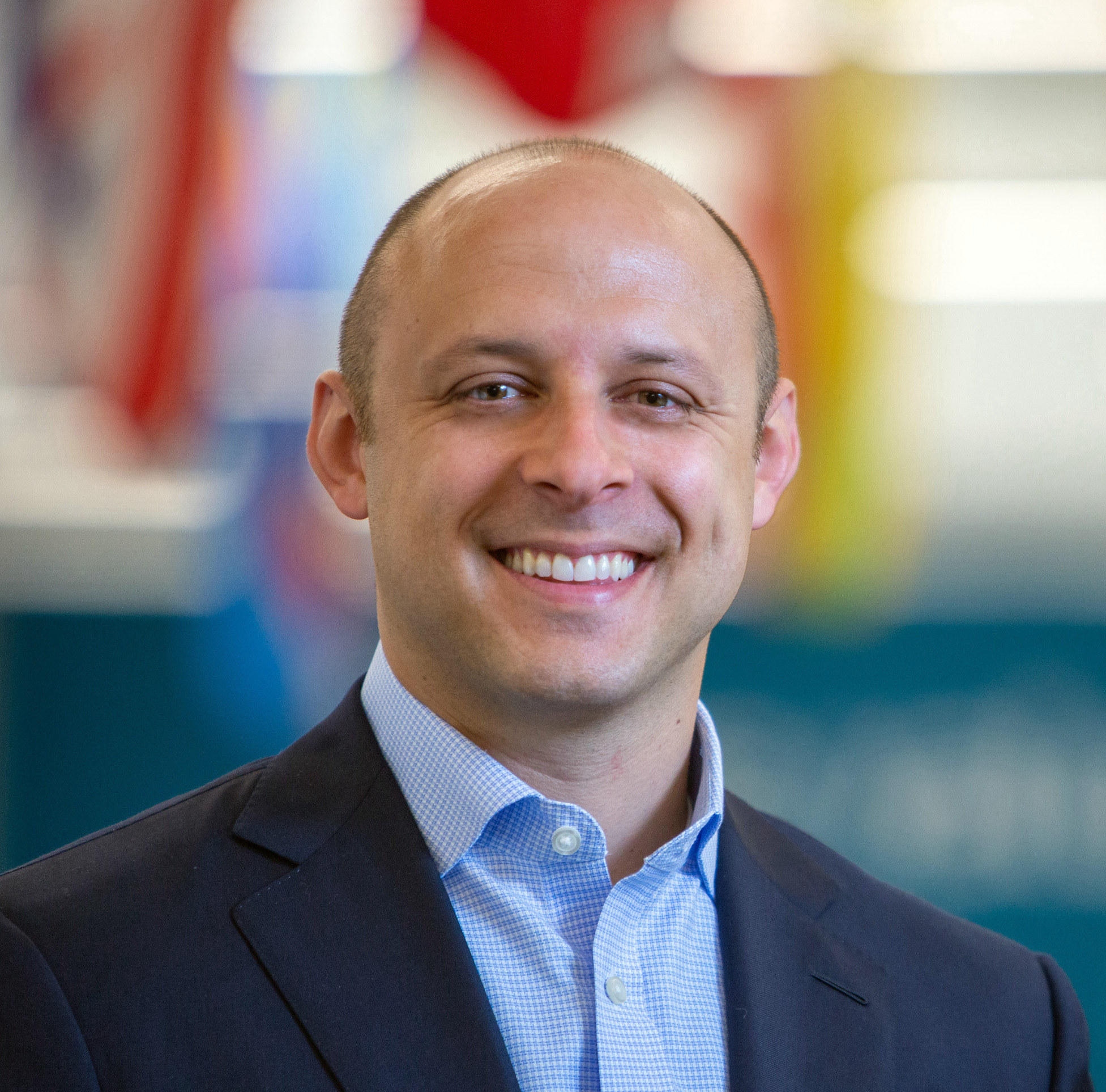
Seth Morales
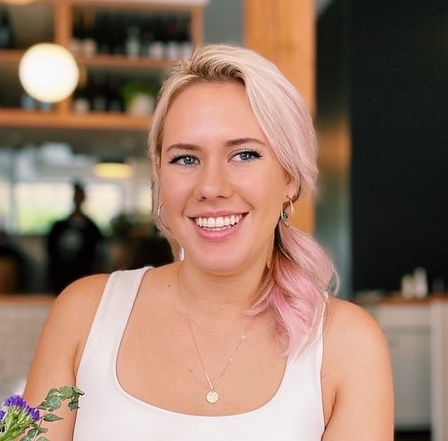
Tori Updike
Today's Guests
